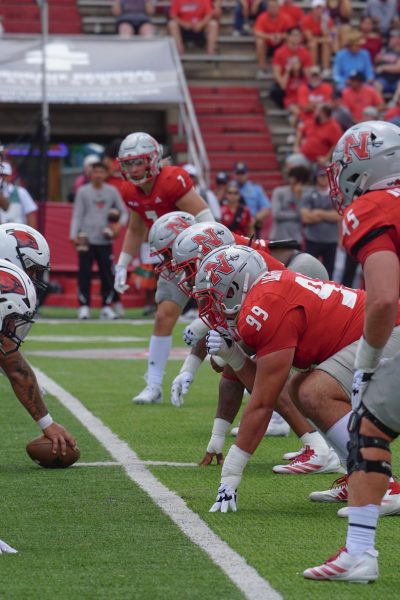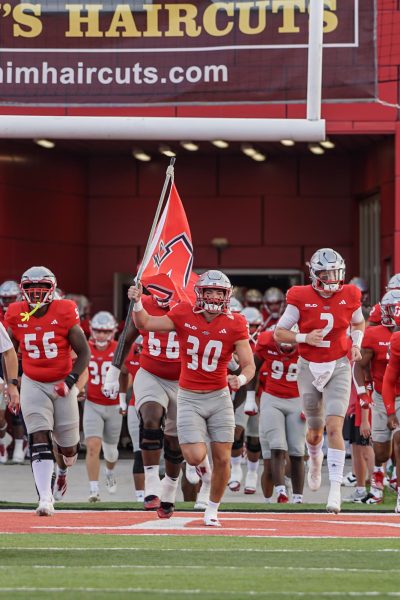Nicholls State University’s Unspoken Heroes: Animals on Campus
As Nicholls State University utilizes a variety of clubs, courses and campus-wide events to try and ensure the normal experience for each student, different animals have also been proven to benefit in a great way.
On campus, service and emotional support animals work hard to accommodate those individuals who require additional assistance.
Student Access Center Director Heidi Dupre explained the different roles and responsibilities these animals hold on campus. She explained the variety of ways in which disabled students can benefit from these services.
“The emotional support animals are to provide individuals with disabilities such as depression, generalized anxiety disorders, PTSD and many other emotional and psychiatric disabilities, a way of having a normal experience on our campus. It’s about providing equal access, and those emotional support animals provide that for students who have those types of disabilities,” Dupre stated.
Additionally, Dupre explained the different ways in which service animals are essential in helping those who may suffer with physical disabilities.
“They can guide people that are blind. They can alert people that are deaf. And, they can pull wheelchairs,” Dupre said.
These service animals were also listed as being beneficial to those who may suffer seizures, in relation to their specific physical disability.
“Some service animals can alert an individual when when a seizure is fixing to happen and it gives that person time to get to a place where they’ll be safe, if the seizure does, in fact, escalate to a place that it can be harmful to the student, if they are not aware that it is fixing to happen,” Dupre said.
With this, the differences between emotional support animals and service animals are distinctive. Emotional support animals provide individual comfort while service animals are trained for specific jobs. They can be trained to perform a certain task.
Along with the different tasks these animals perform, as well as the different levels of comfort they are able to provide, Nicholls also recognizes that some may be allergic to these animals. In the Nicholls Emotional Support Animal Policy, section five, the different conflicting needs and health concerns are addressed.
“What we do is, we take it on a case by case basis. If there is a situation where someone alerts us that they have an allergy or something, we work with those individuals to provide a resolution that is acceptable to everyone involved,” Dupre stated.
Dupre proceeded to explain different examples where the issue with allergies may be prevalent. In the housing complexes, they may go to the extent of switching roommates. If it’s in a specific building, such as a classroom, they may consider trying distance if it helps the allergic student.
“Now, when I say classroom, I’m referring only to service animals. Service animals are only allowed in classrooms, not emotional support animals,” Dupre said.
Emotional support animals are strictly limited to university housing buildings.
Associate Vice President for Student Affairs/ Dean of Students Michele Caruso also stated her support for the presence of these emotional support and service animals on the Nicholls State University campus.
Caruso said that Nicholls State University is always in compliance with the appropriate laws concerning these animals, as well as responsible for exercising the most efficient practices when it comes to these animals.
Caruso also mentioned that Nicholls State University takes great pride in equipping these students with the necessary assistance that these animals are capable of providing.

Fun Facts:
Traveling to Greece is fairly high on my bucket list.
If I were a Starbucks flavor, I’d be a white chocolate mocha—mainly because...












